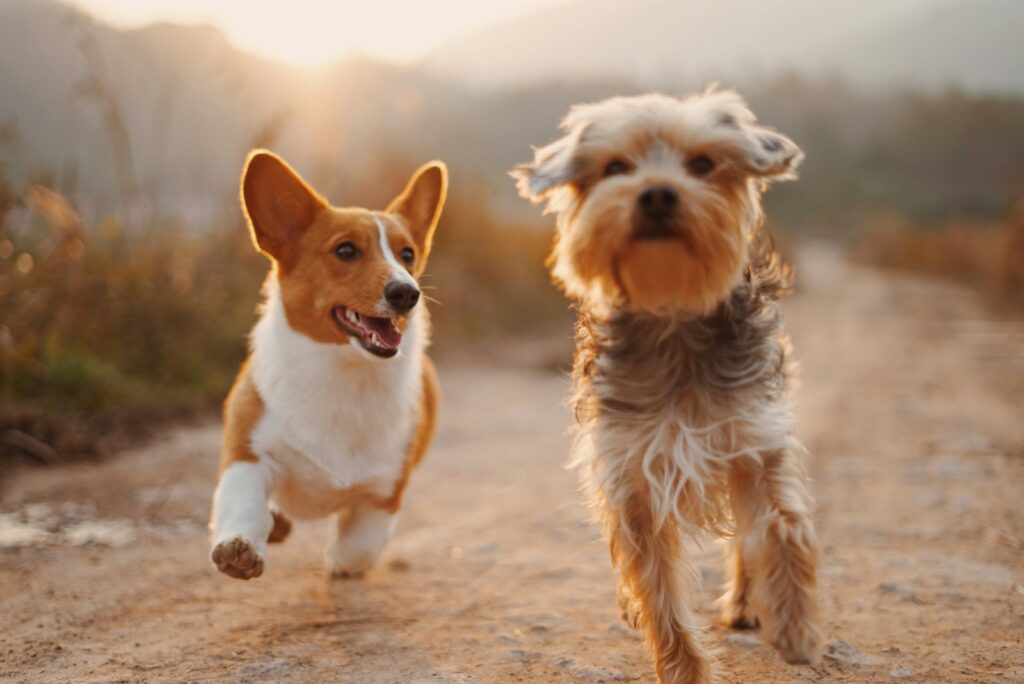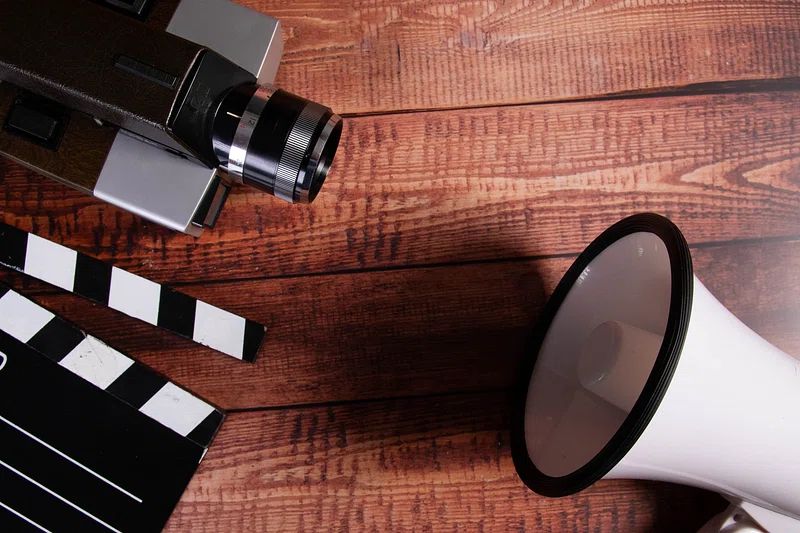Alright, fellow animal lovers! If you’re anything like us, your camera roll is probably overflowing with pictures and videos of your beloved pets doing the funniest, cutest, and sometimes plain weirdest things. Our pets aren’t just animals; they’re bonafide members of the family, bringing endless joy, laughter, and maybe a little bit of chaos into our lives. And because we adore them so much, it’s only natural that we develop special ways of talking about them and all their amazing quirks.
Forget the standard “wag” or “bark” or “roll over”—while those are classics, the internet has given us a whole new vocabulary to play with when it comes to our furry (and sometimes scaly!) companions. With the rise of dedicated pet Instagram accounts, Facebook fan pages celebrating specific breeds, and just pet parents sharing hilarious moments online, a bunch of cool, casual, and utterly perfect slang words have officially entered the pet owner lexicon. Some of these might already be part of your everyday chat, while others could be brand-new discoveries!
So, get ready to update your pet-talk game! We’ve rounded up some of the most paws-itively fur-midable pet slang terms that are circulating right now. These words perfectly capture those specific, often hilarious, pet behaviors and characteristics that make us smile. You might just find yourself using them the next time your doggo does something derpy or your cat shows off their impressive toe beans. Let’s dive into the wonderful world of pet slang!
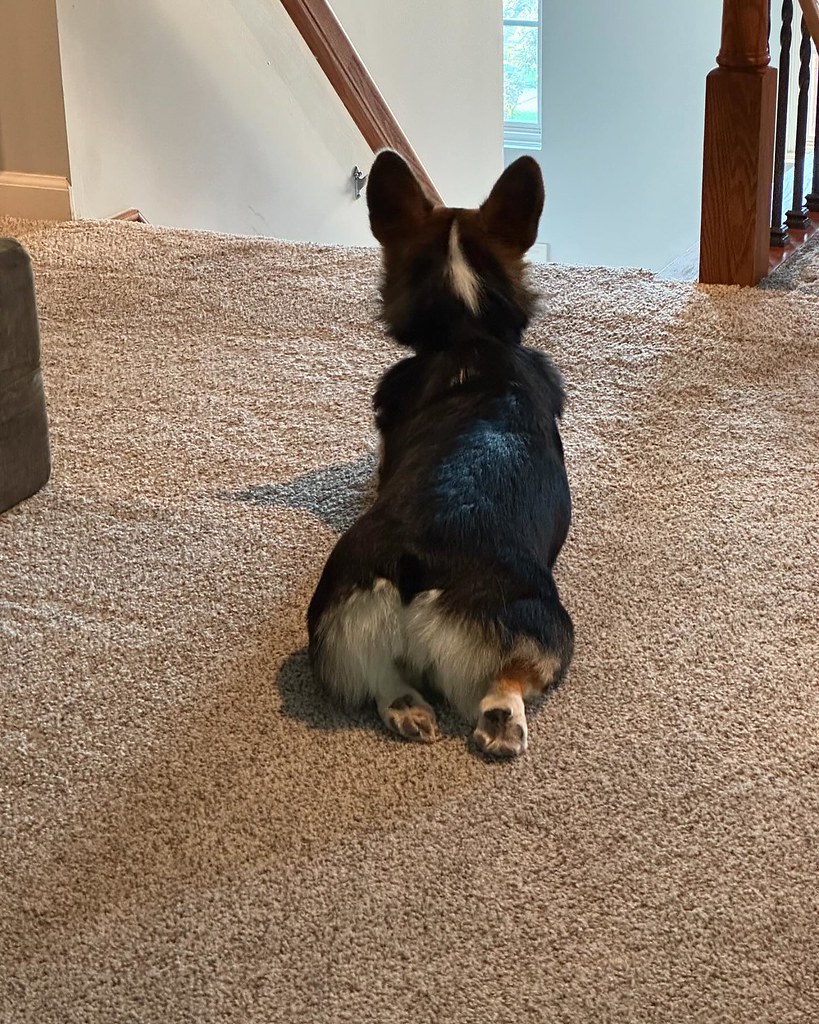
1. **Sploot**: Okay, pet parents, let’s talk about those utterly adorable things our furry pals do! You know those moments that just melt your heart and maybe make you giggle a little? Well, there’s a whole world of fun slang out there to describe them, and we’re diving headfirst into some of our absolute favorites. First up on our list is a term that perfectly captures a specific kind of cute canine and feline contortion: the sploot! It’s more than just a stretch; it’s an adorable-looking stretch that looks like pure relaxation goals.
So, what exactly *is* a sploot? Picture this: your doggo or cat deciding to relax in a way that looks utterly hilarious and surprisingly comfortable. To execute a proper sploot, they lie right down on their tummies. But here’s the key part—they stretch their back legs out straight behind them! It’s like they’re trying to become a furry, four-legged pancake. Seriously, it’s a sight you won’t forget once you see it, and it instantly earns them maximum cuteness points.
This specific posture is a total slang term among pet lovers, and while many breeds of dogs and cats can totally pull it off, it’s one you’ll hear associated a *lot* with our short-legged, big-hearted pals, the Welsh Corgis. They’re practically the mascots of the full sploot! And just when you thought it couldn’t get any cuter, there’s also the variation: the half-sploot or side-sploot. That’s when your beloved furry friend decides to extend just *one* leg out behind them instead of both. Either way, seeing your pet comfortably splooting is a guaranteed mood booster!
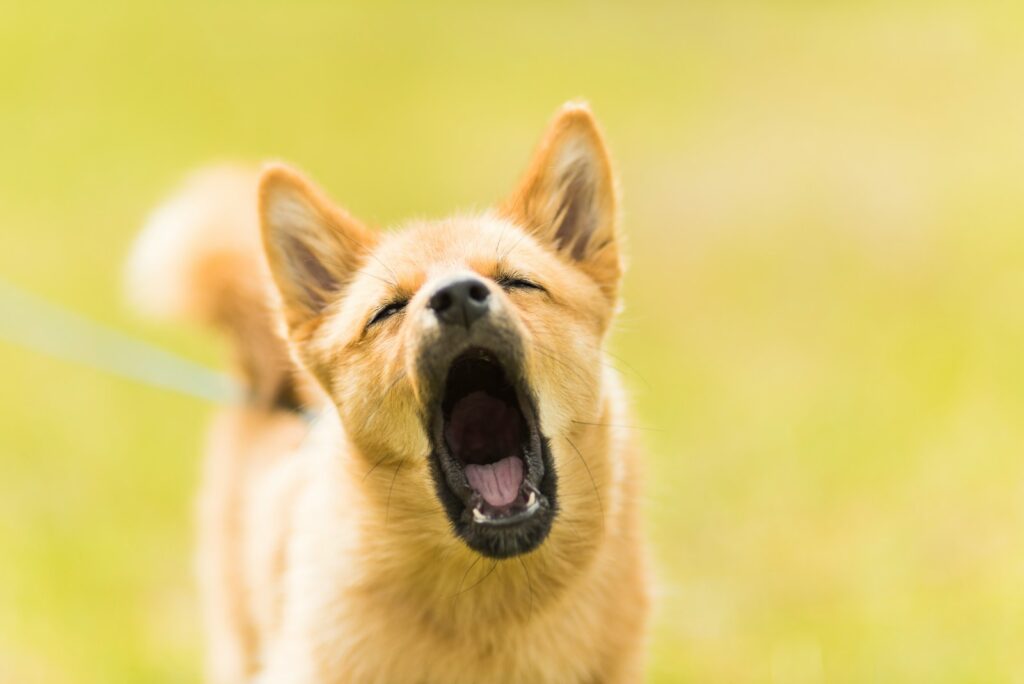
2. **Bork**: Our pets communicate with us in so many ways, and barking is definitely one of the most common sounds we hear, especially from our canine companions! But sometimes, a regular old “bark” just doesn’t cut it to describe the specific sounds our talkative pups make. That’s where this next slang term comes in, adding a touch of playful fun to the sounds of our dogs.
The term is “bork,” and it’s simply a playful, lighthearted way to describe a dog’s bark. It often implies a certain type of bark—maybe a slightly more abrupt sound, or perhaps the kind of sound they make when they’re excited or trying to get your attention in a particularly insistent way. It takes the standard action of barking and gives it a fun, internet-era twist.
And honestly, if you really listen closely to a talkative dog, especially one making those quick, sharp noises, sometimes it *actually* sounds uncannily like they’re saying “bork.” It’s one of those funny phonetic things that just stuck in the online pet community, and now it’s a universally understood way to describe that specific sound our favorite doggos make when they’re vocalizing their thoughts and feelings. It’s way more fun to say they’re “borking” than just “barking,” right?
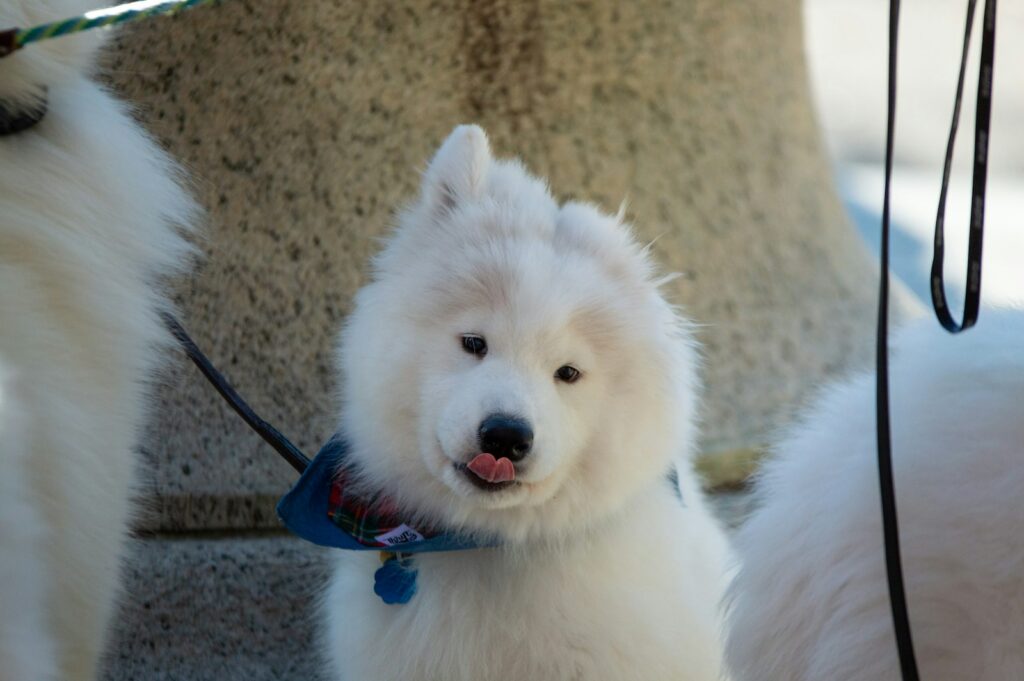
3. **Mlem**: Ever caught your pet doing something super quick and a little strange with their tongue? Like just a little flicker in and out? There’s a slang term for that, and it’s just as fun to say as the action is to watch! This one applies to quite a few different kinds of pets, not just dogs and cats.
A “mlem” is the adorable, slightly quirky slang term for when a cat, a dog, or even sometimes a reptile intentionally sticks their tongue quickly in and out of their mouth. It’s not like they’re just panting or yawning; this is a deliberate, rapid tongue movement that you just might miss if you blink! It’s a fleeting moment of tongue action.
Why do they do it? Well, there are a few reasons mentioned for this swift tongue deployment. They might be doing it to lap up just a little bit of water or perhaps take a quick taste of something. Sometimes, it’s even about tasting the air around them—sort of like a mini environmental survey! Whatever the reason, spotting a mlem is always a delight, and rest assured, even though their tongue is poking out, they’re probably not sticking their tongue out *at you* intentionally. They’re just being their wonderfully weird selves!
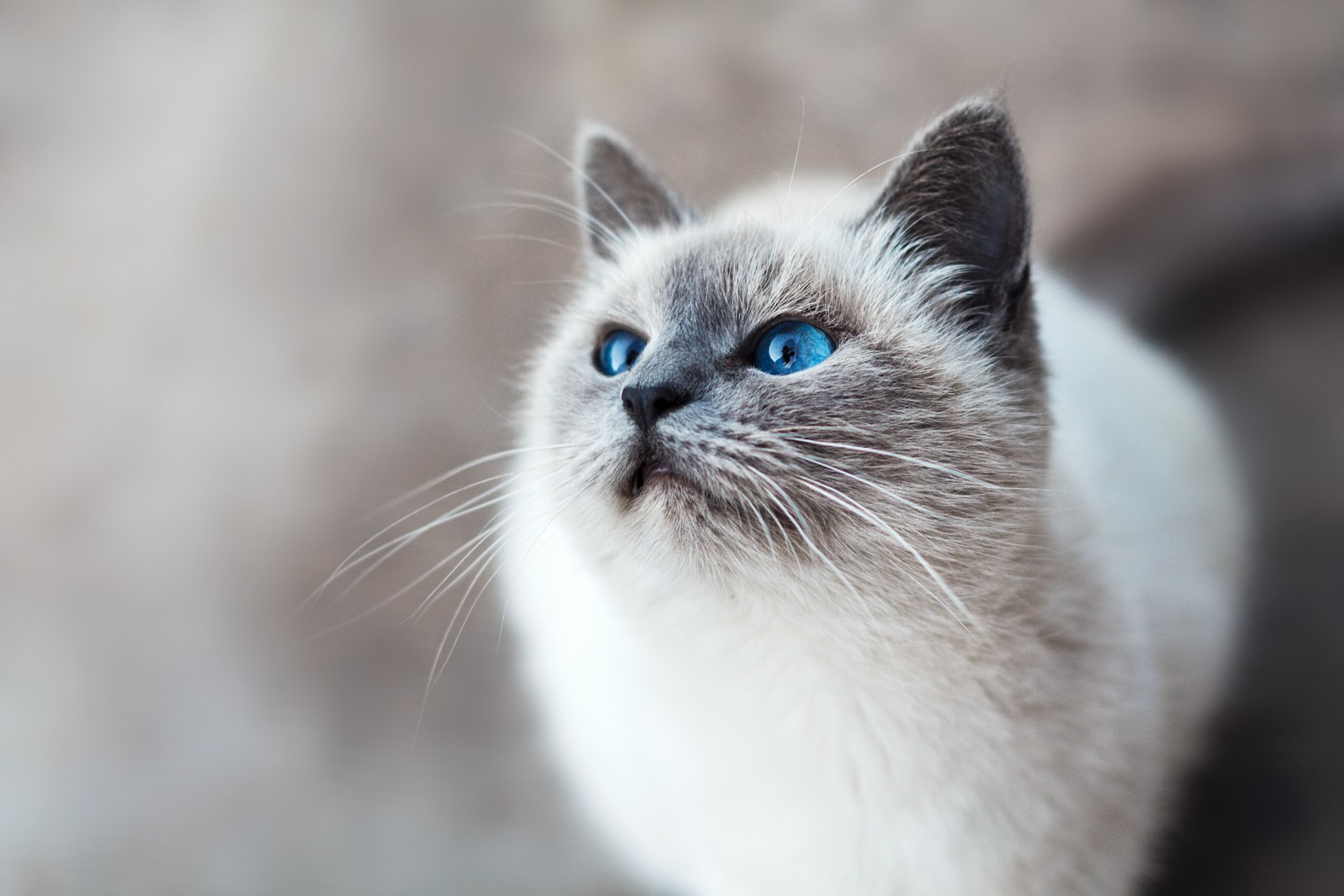
4. **Floof**: Okay, prepare for a term that perfectly captures a certain *type* of pet—specifically, one that seems to defy the laws of physics with the sheer volume of their fur! We all know and love those pets who are just… extra fluffy. This word is dedicated to them.
A “floof” is the affectionate slang term used to describe a dog (though you could probably apply it to a particularly fluffy cat too!) who has an abundance, a glorious amount, of hair. We’re talking about fur so luxurious, so dense, so utterly voluminous that it makes them look significantly larger than their actual body size underneath all that fluff! They are basically walking clouds of cuteness.
There are certain breeds that are particularly famous for their floof factor. When you think of super fluffy doggos, breeds like the majestic Samoyeds, the absolutely tiny but mighty Pomeranians, and the shaggy, lovable Old English Sheepdogs immediately spring to mind. These guys are practically defined by their incredible levels of floofiness. Embracing the term “floof” is just acknowledging the delightful reality that some pets are blessed with an extraordinary amount of fluff that makes them extra huggable and adorable.

5. **Snoot**: We talked about booping a nose, but sometimes the nose itself deserves its own special mention, right? While the standard dictionary already has a word for an animal’s nose, the pet community has embraced a slightly different, more fun term, especially for our dog friends.
The word “snoot” is actually already in the dictionary, and its traditional meaning is indeed “snout” or “nose.” So, technically, it’s not brand new! However, it’s definitely not a term you commonly hear used to describe a human nose—calling someone’s nose a “snoot” might get you some strange looks! But when it comes to describing a dog’s nose? It just fits perfectly. It’s a great word for that often wet, always fascinating, sniffing appendage on the front of their face.
Using the word “snoot” adds a layer of casual affection and charm when talking about your dog’s nose. It sounds playful and just feels right. Whether it’s a long, elegant snoot or a short, smushy one, referring to it as a “snoot” just feels more accurate and more fun than just “nose” or “snout” in the context of admiring our pups. So next time you’re admiring your dog’s ability to sniff out the tiniest crumb, remember to appreciate their impressive snoot!

6. **Doggo**: This next one is perhaps one of the most universally adopted and beloved pet slang terms out there. It’s simple, it’s sweet, and it applies to pretty much any canine you can think of. Get ready to meet the “doggo.”
Here’s the wonderful thing about this term: *every* dog is a doggo. Yep, that’s right! It truly doesn’t matter how old they are—whether they’re a tiny puppy or a wise senior. Their breed also doesn’t matter one bit. Big dogs, small dogs, purebreds, mixes—they are all included under the glorious umbrella of “doggo.” There’s really no complicated rhyme or reason behind it; “doggo” is simply an incredibly cute and affectionate way of referring to your pooch.
What’s even more fun about this term is that its use has expanded beyond just actual dogs in the online world. It’s sometimes affectionately applied to other animals that share some dog-like qualities or just look particularly endearing. For example, if you’ve ever seen a picture or video of seals lounging around, you might hear them referred to as “water doggos” because they look like they’re having a good old time just like a dog would! It just goes to show how widely applicable this term of endearment has become in the internet’s pet-loving corners.
Alright, pet people! We’ve already dipped our paws into some absolutely essential pet slang, covering everything from adorable stretched-out ‘sploots’ to affectionate ‘boops’ on the nose and celebrating the universal ‘doggo. But trust us, the fun doesn’t stop there! The internet’s collective love for our furry companions has given us even more perfect words to add to our vocabulary when describing their hilarious antics and charming looks.
Let’s pick up right where we left off and explore the next batch of delightful terms that will make your conversations about your pets even more colorful and relatable. Whether you’ve got a tiny furball or a big, lovable lug, or maybe one who just runs in circles like a maniac, there’s a slang word here that’s just waiting to be part of your everyday pet chatter. Get ready to uncover more gems from the wonderful world of pet slang!

7. **Pupper**: So we talked about how *every* dog is a doggo, which is awesome! But sometimes, you encounter a dog that’s just extra tiny, extra new to the world, and just screams *baby*. That’s where this next super cute term comes in handy. It’s a related term to doggo, but with a slightly different feel.
Meet the “pupper”! As you might guess from the sound of it, this slang word is specifically used to describe a puppy. It’s a sweet, diminutive term for those adorable, clumsy, energetic little bundles of joy that are still navigating the world on their tiny paws. It captures that specific stage of puppyhood, full of wiggles, naps, and maybe a few accidents!
Now, here’s a fun twist: while “pupper” is technically for puppies, some folks just can’t help but use it for their *adult* pets too! If they have a grown-up dog that’s just exceptionally adorable or perhaps behaves in a particularly puppy-like manner, they might affectionately call them a “pupper” anyway. It just goes to show how flexible and full of love pet slang can be!
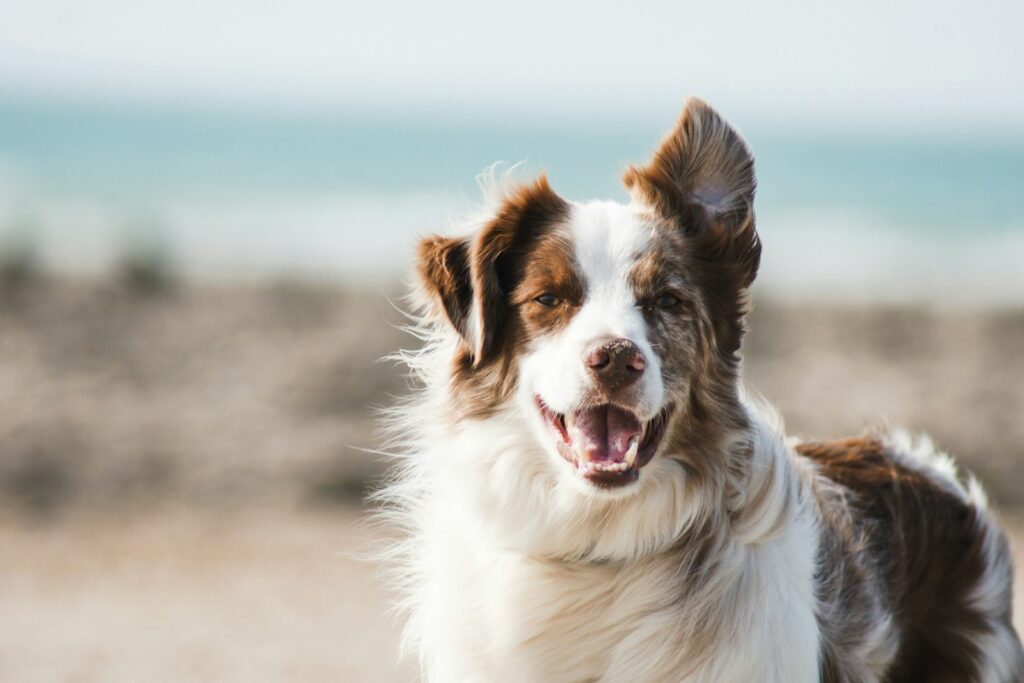
8. **Woofer**: On the opposite end of the size spectrum from the adorable “pupper,” we have a term that perfectly describes the bigger, perhaps more imposing, members of the canine family. These are the dogs who have a bit more heft, a bit more presence, and maybe a bark that makes you pay attention!
This slang word is “woofer,” and it’s used to describe a larger, burlier dog. Think of it as the big brother (or sister!) term to “pupper” and “doggo.” These are the dogs who might be gentle giants or just have a more solid build. The term itself sounds like a deep, resonant sound, which sort of fits the vibe of a larger dog, doesn’t it?
The context even gives us some prime examples of breeds that absolutely fit the “woofer” description. We’re talking about majestic and powerful dogs like Great Danes, solid and strong Mastiffs, and the famously large and lovable Saint Bernards. These breeds are known for their size and stature, making them perfect examples of what the pet slang community affectionately calls a “woofer.”
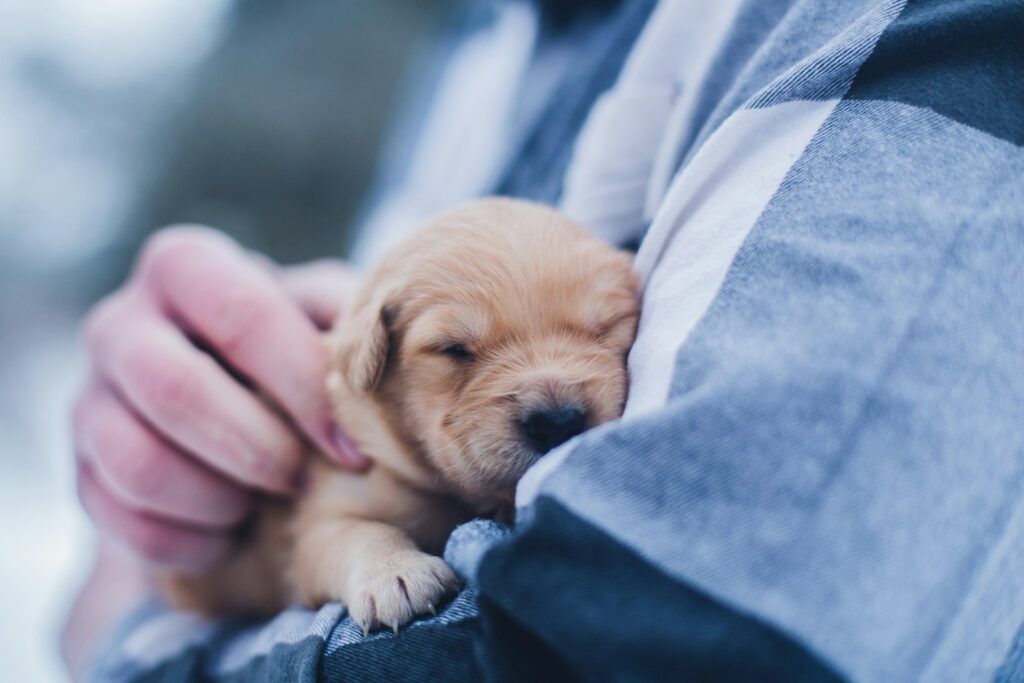
9. **Smol**: Let’s swing back to the tiny side of things! While “pupper” captures the *age* of a young dog, this next term is all about sheer size, or rather, the delightful *lack* of it! Sometimes, a pet is so incredibly small and cute that the regular word “small” just doesn’t feel adequate.
That’s when you need the word “smol.” It’s a super appropriate slang term specifically for pets who are super tiny. It’s not just about being small; it’s about being *adorably*, *exceptionally* tiny. It emphasizes their miniature size in the most endearing way possible.
The term is perfectly used to describe creatures like a new, super tiny kitten or a puppy. These little guys and gals are often so small they can fit in the palm of your hand, and calling them “smol” just captures that specific brand of fragile, overwhelming cuteness that makes you want to protect them forever. It’s a simple linguistic twist that adds maximum affection.
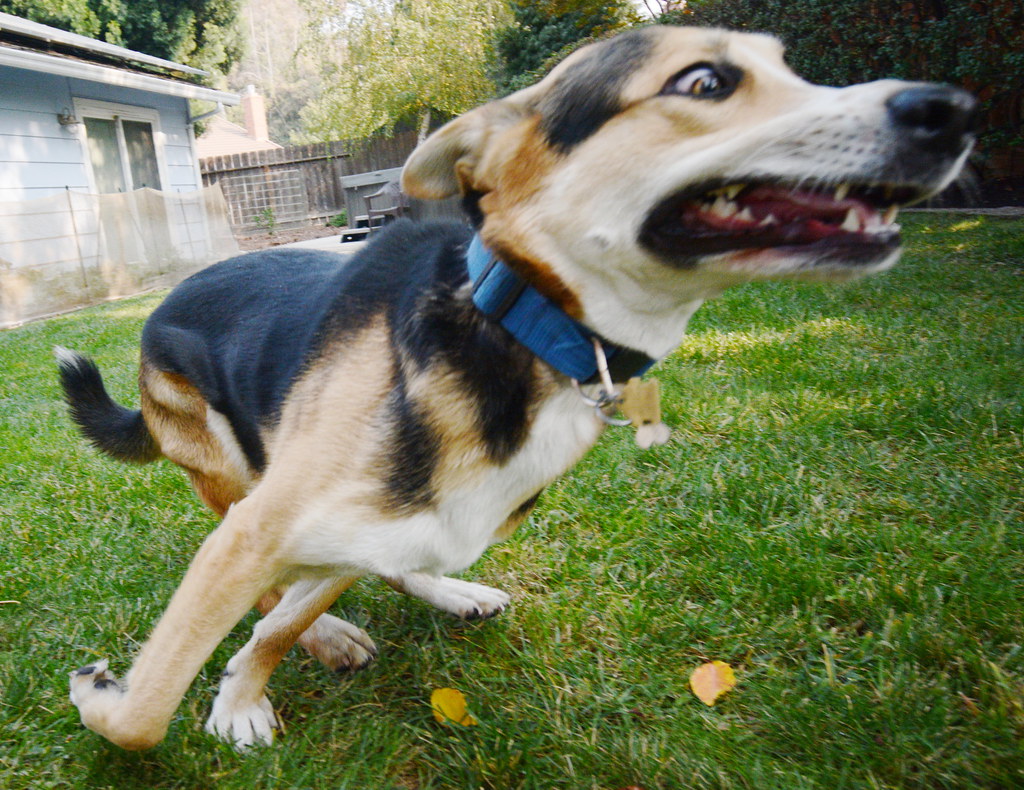
11. **Zoomies**: Every single pet owner reading this is going to know *exactly* what we’re talking about with this next term. It’s a universal pet phenomenon, especially among dogs, that strikes suddenly and brings a wave of chaotic, hilarious energy into the room! It’s the moment when your calm, sleepy pet suddenly transforms into a furry blur.
The slang term is “zoomies,” and it perfectly describes when your pet gets a sudden, uncontrollable burst of energy. It happens seemingly out of nowhere—one minute they might be napping peacefully, and the next they’re rocketing around the house or yard like a furry rocket! It’s pure, unadulterated excitement manifesting as speedy motion.
When a dog has the zoomies, they often run around wildly, frequently in circles! It’s like they just have so much pent-up energy and excitement that they need to expel it all in one go through frantic, directionless running. It’s a common and often amusing behavior that every fur parent witnesses and recognizes instantly, and “zoomies” is the perfect word to capture that moment of ecstatic chaos.
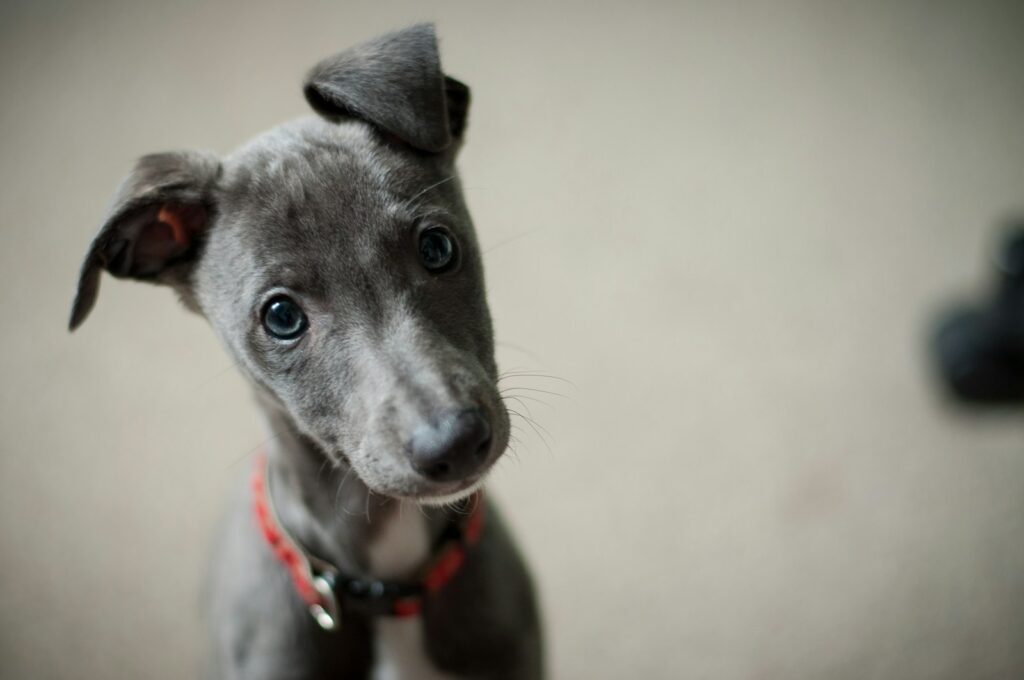
11. **Derp**: Sometimes our pets aren’t just cute or energetic; sometimes they look… well, a little bit silly, confused, or just plain clueless! These are the moments that catch us off guard and usually result in us bursting into laughter. There’s a specific slang term for that specific look!
That term is “derp.” It’s used to describe a look of confusion, awkwardness, or cluelessness that you might see on a dog or cat’s face. It’s not that they’re unintelligent, it’s just that sometimes their expressions land in this wonderfully goofy territory that makes them look utterly silly.
The context provides a classic example of a “derp” look: when your doggo’s eyes are crossed and their tongue is hanging out! Picture that face—it’s the epitome of “derp.” It’s that slightly vacant, totally unselfconscious expression that makes them look like they’re not quite sure what’s going on, but they’re okay with it. Spotting a “derp” moment is always a highlight of the day!

12. **Blep**: Remember “mlem,” that quick, intentional tongue flick? Well, the pet slang world has a companion term that’s similar but just a little bit different, capturing an even faster, perhaps less deliberate, tongue action! This one is super fleeting.
This term is “blep.” Like a “mlem,” it refers to an animal sticking their tongue out. However, the key difference is that a “blep” is much faster than a “mlem.” It’s just a super quick second where their tongue pokes out, and often, they might do it without even realizing it! It’s a tiny, blink-and-you’ll-miss-it tongue appearance.
Think of it as an accidental or unconscious tongue-out moment. While a “mlem” might be a deliberate lick or taste, a “blep” is more like their tongue just sort of… escapes for a fraction of a second before being quickly retracted. It’s another one of those small, adorable quirks that pet owners notice and cherish, now with its own perfect slang descriptor!
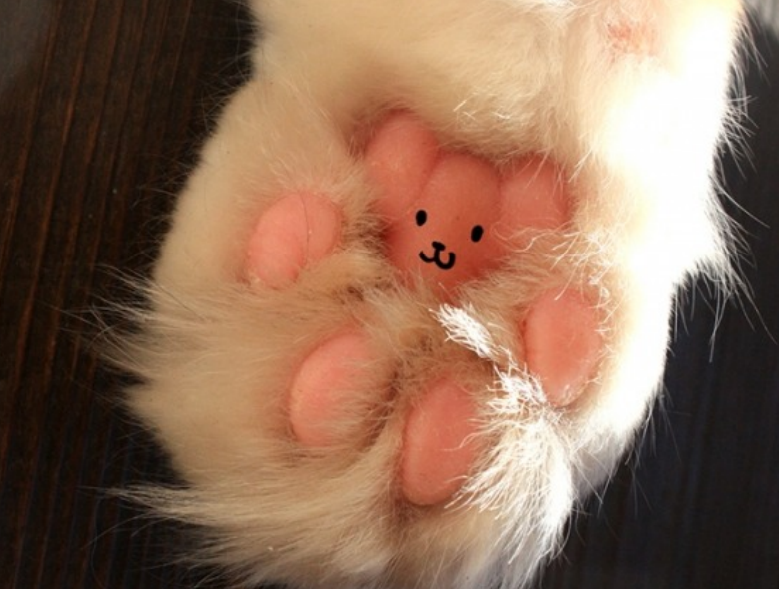
13. **Toe beans**: Now, let’s talk about one of the most universally adorable parts of our pets, especially cats and dogs! When they’re sleeping, stretching, or just relaxing, you might get a peek at the underside of their paws, revealing those cute, squishy pads.
Now, let’s talk about one of the most universally adorable parts of our pets, especially cats and dogs! When they’re sleeping, stretching, or just relaxing, you might get a peek at the underside of their paws, revealing those cute, squishy pads.
These precious little pads on the bottom of your pet’s paws have earned themselves the most delightful slang term: “toe beans.” Doesn’t that just perfectly capture how they look? Like little beans! They’re soft, often different colors, and line up neatly on the sole of the paw.
The context reminds us that while they look incredibly cute and squishy, you should try not to squeeze them too hard – your pet might not appreciate it, and you could even get scratched! But just the sight of those adorable “toe beans” is enough to melt any pet lover’s heart. They’re a small but mighty source of cuteness.
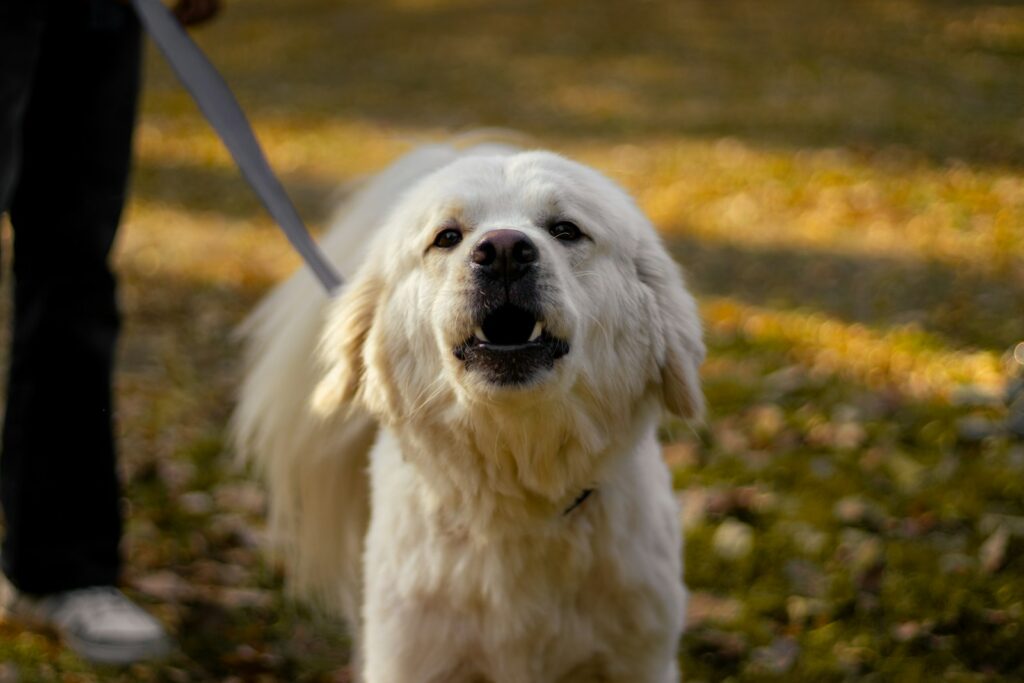
14. **Boof**: We’ve covered barking (“borking”) and even the quick tongue flick (“blep”). But dogs have a whole range of vocalizations, don’t they? There’s another specific sound, a particular kind of bark, that the pet slang lexicon has captured with its own unique term.
We’ve covered barking (“borking”) and even the quick tongue flick (“blep”). But dogs have a whole range of vocalizations, don’t they? There’s another specific sound, a particular kind of bark, that the pet slang lexicon has captured with its own unique term.
This term is “boof.” It describes a lower, deeper bark compared to a regular bark or “bork.” It’s the kind of sound where they might not even fully open their mouth! It’s a more muffled, perhaps more serious-sounding bark.
According to the description, a dog might use this kind of “boof” if they are slightly intimidated or if they know they might get yelled at for being too loud with a full, resonant bark. It’s like a cautionary, slightly hesitant vocalization. So next time you hear that low rumble from your dog, you’ll know exactly what to call it—a “boof”!
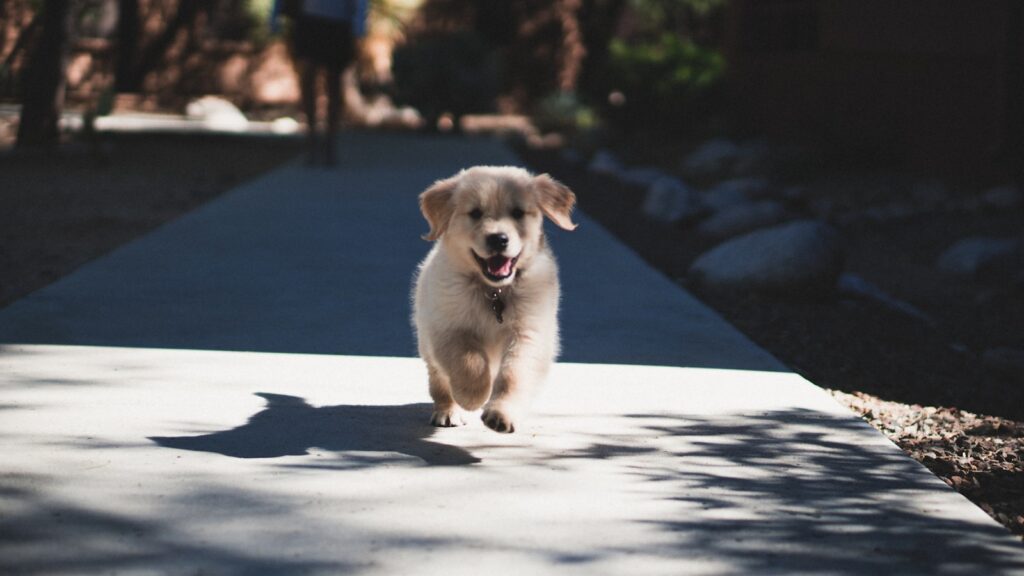
Phew! We’ve journeyed through quite the dictionary of adorable pet slang, haven’t we? From the stretched-out comfort of a sploot to the tiny cuteness of something smol, the chaotic joy of zoomies, and the preciousness of toe beans, these words just add so much fun and specificity to how we talk about the animals we love. It’s amazing how our shared affection for pets has created this whole new language online. So go forth, fellow pet parents, and integrate these fantastic terms into your everyday conversations! Your pets (and maybe even your friends) will thank you for it!

